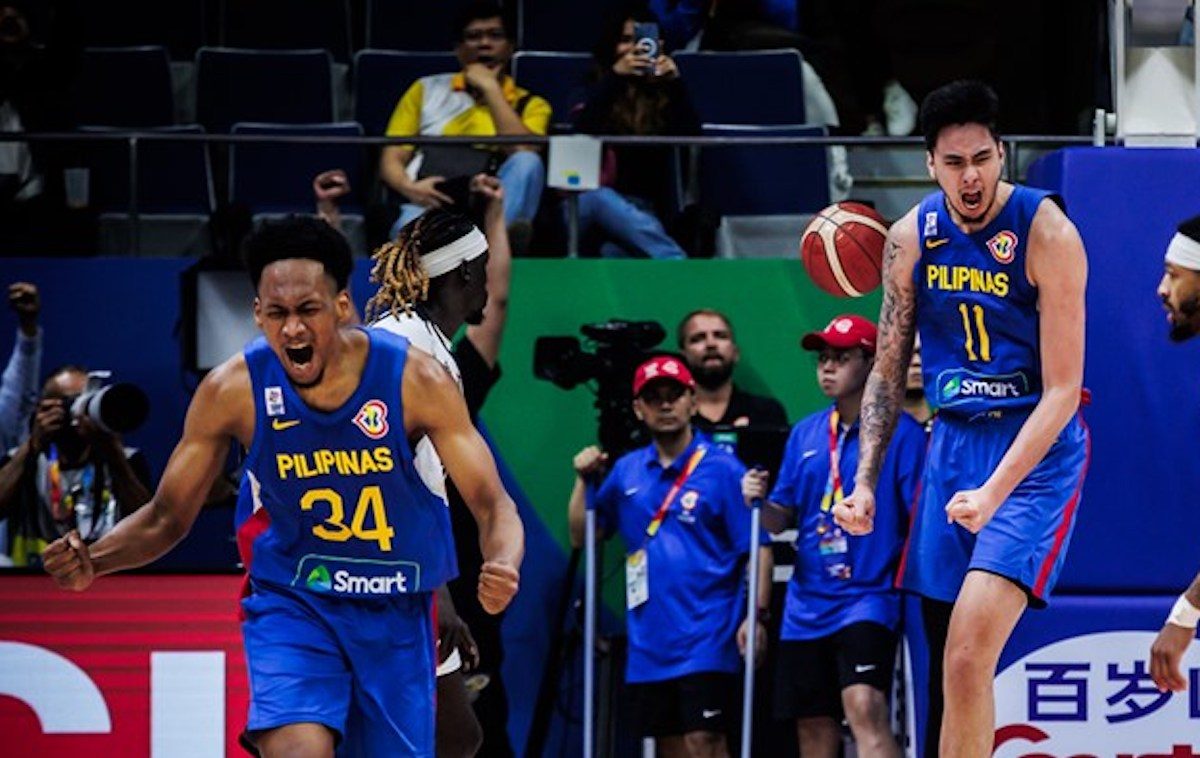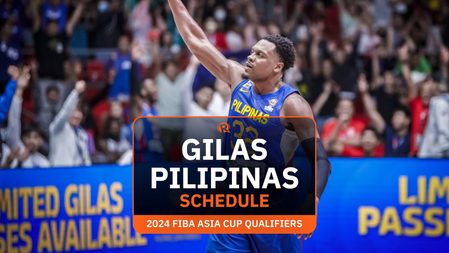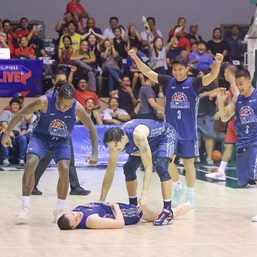SUMMARY
This is AI generated summarization, which may have errors. For context, always refer to the full article.

MANILA, Philippines – A fresh start awaits Gilas Pilipinas as FIBA begins a new cycle starting with the Asia Cup Qualifiers.
Back in action after their historic Asian Games title romp, the Nationals will tangle with Hong Kong and Chinese Taipei on February 22 and 25, respectively, for the first window as part of Group B, which also includes New Zealand.
What is the significance of the Asia Cup Qualifiers?
Much-needed continuity
Teams are allowed to parade different sets of lineups for each of the three windows: February 2024, November 2024, and February 2025.
In fact, the Philippines fielded 30 different players across its six games in the qualifiers of the previous Asia Cup – the most by any participating teams in that edition.
Out of those 30 players, only nine made the 2022 Asia Cup roster.
But this time, things are expected to be different as head coach Tim Cone – tapped by the Samahang Basketbol ng Pilipinas to handle the national team for the long run – plans to keep his 12-man core together for the next four years.
“This team is going to stay together through every window. We play Southeast Asian Games, we play Asian Games, we play World Cup qualifiers, we play FIBA Cup qualifiers, we want to keep this team intact,” said Cone.
“Because every time we play, we will grow from either the success or the failure that we have.”
That means program cornerstones Kai Sotto, AJ Edu, Dwight Ramos, Carl Tamayo, and Kevin Quiambao will be able to play alongside each other regularly leading up to the FIBA World Cup in 2027.
Sure, there will be roster changes due to injuries and age – Justin Brownlee and June Mar Fajardo are already 35 and 34, respectively – but essentially, Cone wants to foster continuity that the program lacked in past years.
“If you need to tweak it here and there with personnel changes, then you do that. If I need to tweak the system a little bit, I’ll make tweaks in the system,” said Cone.
“But the foundation will be there. The foundation of the players will be there, the foundation will be there.”
Road to Paris
Cone and Gilas intend to use the Asia Cup Qualifiers to build for the Riga, Latvia leg of the FIBA Olympic Qualifying Tournament (OQT) in July.
Having last sent a men’s basketball team to the Olympics in 1972, the Philippines will need to defy the odds if it wants to end that decades-long absence in the Paris Games.
Waiting for the Filipinos in the first stage of the OQT are world No. 8 Latvia and world No. 23 Georgia, teams which both made it past the opening round of the last World Cup.
Latvia notably finished fifth in its World Cup debut despite playing without Boston Celtics star Kristaps Porzinigs, only narrowly missing the final four after an 81-79 loss to eventual champion Germany in the quarterfinals.
Aside from Porzingis, Latvia boasts of other current and former NBA talents in Charlotte Hornets forward Davis Bertans, Rodions Kurucs, and Dairis Bertans.
Meanwhile, Georgia placed 16th in the World Cup behind Orlando Magic center Goga Bitadze, San Antonio Spurs big man Sandro Mamukelashvili, and Tornike Shengelia, who suited up for the Brooklyn Nets and Chicago Bulls.
Beating Latvia and Georgia will be a tall order, so it is pivotal for Gilas to make progress as early as possible.
“We’ll use this first window, we’ll use the preparation time in this window to get to a certain level and bring that level into the OQT and be able to play Latvia and Georgia and improve from there,” said Cone.
If the Philippines secures a top-two finish in its OQT group, it will advance to the crossover semifinals against the top two squads from other group composed of world No. 12 Brazil, No. 17 Montenegro, and No. 67 Cameroon.
Only the winner of that OQT leg will punch a ticket to Paris.
Big dance
Out of the 24 participating teams in this edition of the Asia Cup Qualifiers, 16 will qualify for the official tournament set in 2025 in Jeddah, Saudi Arabia.
The 24 squads are divided into six groups, with the top two from each group advancing directly to the Asia Cup and the six third-placed teams vying for the four remaining spots.
Considering the caliber of teams the Philippines will go up against in Group B – world No. 21 New Zealand, No. 78 Chinese Taipei, and No. 119 Hong Kong – reaching the Asia Cup for the eighth straight edition should be a doable task.
Qualifying for the Asia Cup, though, is one thing, going deep into the tournament is another.
The previous Asia Cup proved to be a wake-up call for the Philippines as it missed the top eight for the first time in 15 years.
Gilas endured its worst finish since it placed ninth in the 2007 edition after a 102-81 blowout loss to Japan in their playoff for the quarterfinals.
Ending its run with a 1-3 record, the Philippines beat only India and averaged a losing margin of 17.7 points against Lebanon, New Zealand, and Japan.
The upcoming Asia Cup gives Gilas a shot at redemption and a chance to solidify its place among the best in the continent, counting its Asian Games triumph.
Behind only 16-time champion China for most Asia Cup titles with five, the Philippines came close to the crown when it finished second in 2013 and 2015, but it has since lost its touch, settling for seventh in 2017 and ninth in 2022.
With a clear program in place and a formidable roster assembled, it is high time for Gilas to become a consistent force in the international scene. – Rappler.com
Add a comment
How does this make you feel?









There are no comments yet. Add your comment to start the conversation.